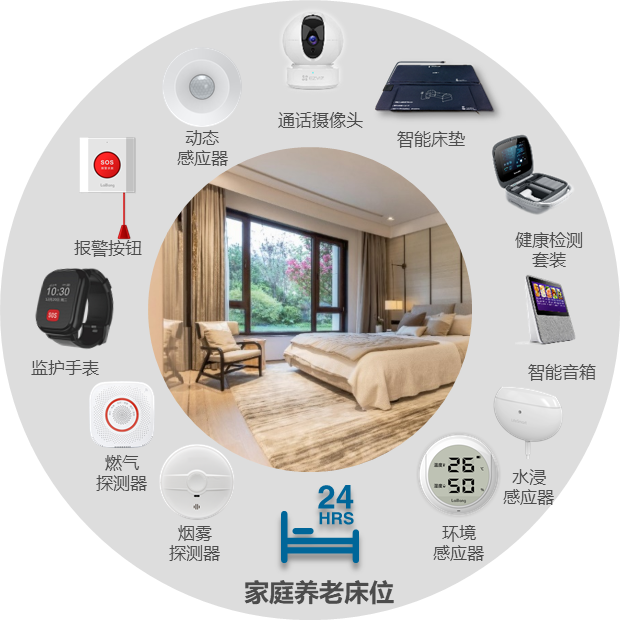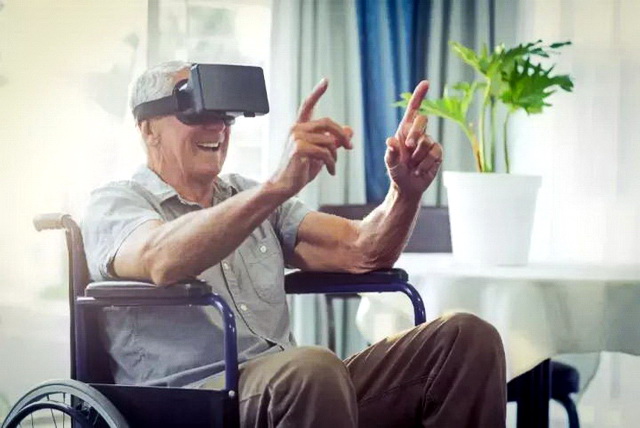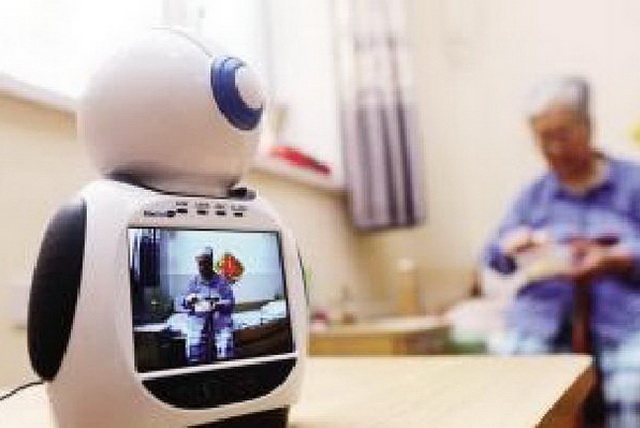Digital Home Elderly Care
Using the Internet to Improve the Quality of Life of the Elderly
Using the internet for home-based elderly care can greatly improve the quality of life for the elders, enhance their independence, reduce medical expenses, and provide great convenience. These advantages bring a better life experience for the elderly and also alleviate the burden on families and medical resources, with positive impacts on the entire society.
Advantages of Digital Elderly Care:
- Improving the quality of life of older adults:
Through internet technology, the elderly can receive better care and attention at home, such as remote diagnosis and consultation with healthcare professionals through video calls. In addition, they can use online social platforms to communicate and share experiences with others, enhancing social connections. - Enhancing Independence in Older Adults:
Home care can make the elderly more independent, and they can complete some daily activities independently at home, such as purchasing daily necessities through online shopping, or conducting banking business through online banking services. - Reduce medical costs:
By utilizing remote medical services through the Internet, elderly people can avoid many cumbersome medical procedures and costs, such as transportation and accommodation expenses, while also reducing their families' medical expenses. - Convenient:
Older adults can easily engage in remote communication and services using internet technology without having to spend time and effort commuting to hospitals or social events. This convenience can allow older adults to manage their lives and health more easily and comfortably.

Digital Elderly Services:

Smart Home:
Installing smart home devices, including security monitoring, smart lighting, and smart appliances, can facilitate the daily life of older adults. For example, a smart lighting system can be installed to automatically turn lights on and off according to the older adult's biological clock, enhancing their comfort of living.

Health monitoring:
Using smart health monitoring devices can allow real-time monitoring of the physical condition of elderly people, such as thermometers, blood pressure monitors, heart rate monitors, and so on. These devices can share data with doctors or family members through the Internet, allowing timely updates on the health status of the elderly.

Social activities:
Older people need to have appropriate social activities to maintain physical and mental health. You can use video conferencing tools such as Skype or Zoom to video call family and friends, or participate in virtual community activities such as online lectures or online games.

Online Shopping:
Using Internet technology, the elderly can purchase daily necessities and medicines through e-commerce platforms at home, avoiding the increased risks of going shopping. Before shopping, the elderly can use smart assistants or the help of family members to screen products to ensure that the purchased products are safe.

medical service:
Using Internet technology, the elderly can receive telemedicine services such as online doctor consultation or remote pharmacy through video conferencing and other methods. This can reduce the risk and inconvenience of going out to see a doctor.
In summary, by utilizing internet technologies such as smart home devices, health monitoring, online socialization, e-commerce, and remote medical services, the elderly can achieve high-tech care and improve their quality of life and convenience. At the same time, family members and communities can also use these technologies to better care for and support the elderly.